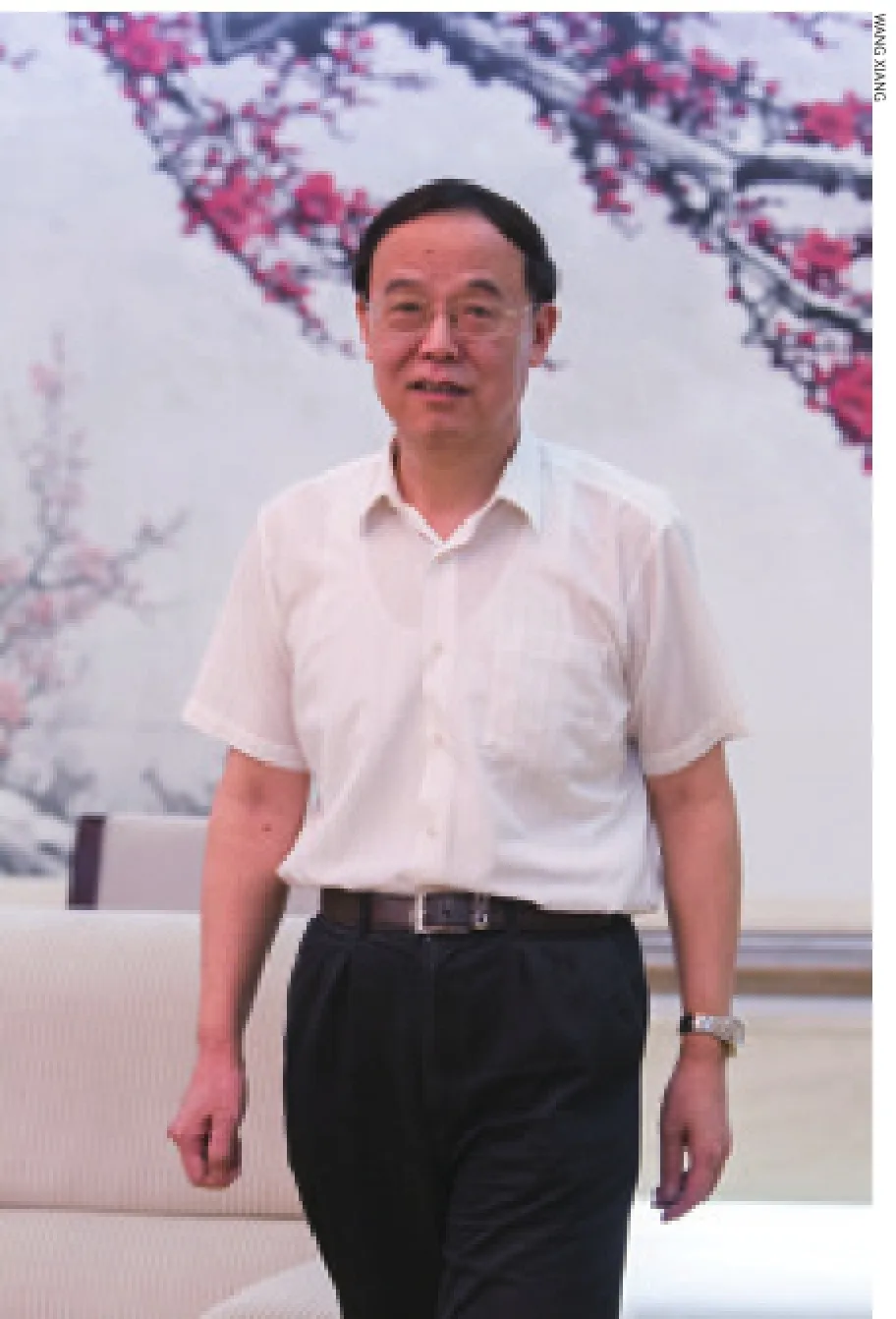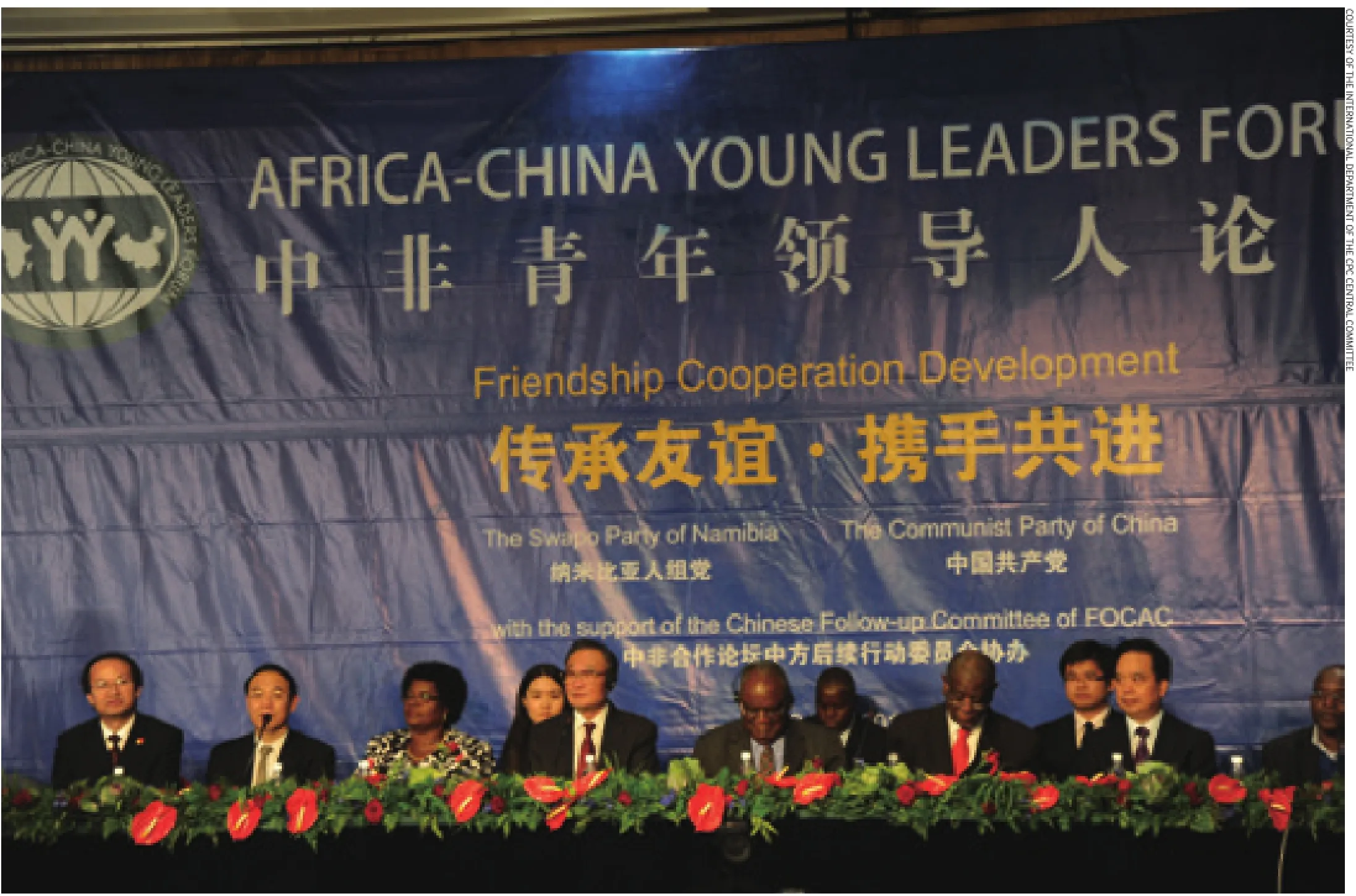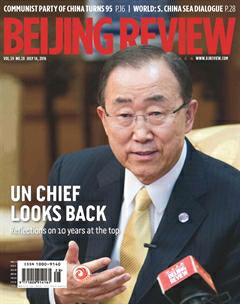Witness to History
2016-09-22veteranmemberlooksbackatthemilestonesespeciallyinAfricantiesByZhengYang
A veteran member looks back at the milestones, especially in African ties By Zheng Yang
Witness to History
A veteran member looks back at the milestones, especially in African ties By Zheng Yang

Ai Ping, former deputy head of the International Department of the CPC Central Committee
A military band and 21-gun salute. That's the kind of fanfare nations use to announce a valued relationship with another nation. But when it comes to political parties, they prefer to make friends in a quieter way. Though the Communist Party of China (CPC), one of the largest parties in the world with extensive relations with like-minded organizations around the world, turned 95 on July 1, there are few personal anecdotes on its exchanges with other parties.
However, veteran CPC member Ai Ping has a wealth of information, especially about the CPC's links with African parties,thanks to a 30-year career in developing the CPC's external relations. His career in a way reflects the growth of arguably the most famous communist party in the world.
Milestone shift
In 1977, as a newly graduated English major, Ai was assigned a job in the International Department of the CPC Central Committee.
The department was established in 1951, less than two years after the birth of the People's Republic of China, to manage the external relations of the CPC through exchanges and cooperation with other political parties in the world.
Ai was put in the West Asian and African Affairs Bureau. In the second month on the job, he got the chance to witness an historic policy shift in the Party.
It was the end of 1977, and representatives of the Front for the Liberation of Mozambique(FRELIMO), the ruling party in Mozambique,were visiting China. FRELIMO had expressed keenness to establish relations with the CPC,but the latter was reluctant to do so.
“At the time, the CPC had a principle of building relations only with communist parties,”Ai told ChinAfrica, a monthly magazine under Beijing Review published in English and French.“Its external relations, to a large extent, served the International Communist Movement.”
Given the principle, the CPC insisted on defning the trip as a state visit, rather than an exchange between political parties, which raised eyebrows in Mozambique.
At the time, the CPC was also opposing the hegemony of the then Soviet Union, and the comprehensive relationship between Mozambique and the Soviet Union further complicated relations between China and Mozambique.
However, it is never a good idea to treat an olive branch with coldness. So the visit became a turning point, prompting the Party to give second thoughts to its policy. Subsequently,the International Department and the Ministry of Foreign Affairs jointly proposed to the CPC Central Committee that the restrictions on choosing friends be lifted,especially for nationalist parties in Sub-Saharan Africa.
“It was a watershed moment in CPC history. Since then, the external relations of the CPC began to be no longer based on the same ideology necessarily, nor share the aim of the International Communist Movement,” Ai said. “It began to serve the nation's foreign diplomacy instead. I consider myself very lucky to have witnessed the change.”
The CPC's “friends' circle” frst opened up to nationalist parties, then extended to social democratic parties, and finally crossed ideological differences to include mainstream parties in developed countries. Today, the CPC has established relations with most major political parties in the world.
“It [inter-party exchanges] has been a direct access and window for the CPC to understand the world,” Ai said.
Natural allies
As the CPC made the decision to open up, Ai felt it was destined to start with Africa.
“African countries were natural allies of the CPC because the national liberation movements in African countries were inherently linked to the International Communist Movement,” he said.
In Africa, the national liberation movements were mainly led by African political parties. Infuenced by China and the then Soviet Union,many African countries were planning to take the socialist road after their independence. The similarity in ideology meant similar thinking for development; so it was always easier to fnd a cooperation mode, Ai said.
Ideological differences, however, did not continue to be an obstacle.
“They might not be a communist partyor take the socialist road, but every political party around the world faces similar challenges and issues—peace and development,” Ai remarked.
With the CPC making more friends around the world, Ai has visited over 40 African countries and greeted many African friends coming from afar to China. “Our job is to show them the real China and both the positive and negative experiences of the CPC,” he said.
The most important thing for African countries, he believes, is to find an appropriate path of their own. To achieve that,political parties are necessary.
One of the old friends of the CPC is the Ethiopian People's Revolutionary Democratic Front (EPRDF), which came to power in 1991. An EPRDF delegation first visited China in 1994 to learn about rural development from the Chinese experience. Ai designed their itinerary in China and accompanied them throughout the trip.
Three years later when he visited Ethiopia,the old friends told him they had found an“Ethiopian path of development” based on what they learned in China—a path of agricultural development-led industralization.

Wu Bangguo (fourth left), then Chairman of the Standing Committee of the National People's Congress of China, attends the First Africa-China Young Leaders Forum in Namibia in 2011
A different role
Throughout his career, Ai witnessed many historic moments for the CPC; his own arrived in 2001. That year, he was appointed Chinese ambassador to Ethiopia.
From a CPC offcial to an ambassador is more than a job change, he said. “It was the time I represented my country, and it made me very proud.”
Without the previous experience of inter-party exchanges, Ai said he could have faced more challenges in the new position. The friendship established previously always helped him reach the right person in an effcient way: “It was like having an extra channel for communication.”
After his term ended in 2004, it took Ai six years to return to Ethiopia. When he went there as deputy head of the International Department of the CPC Central Committee in 2010, he was amazed by the changes. He also realized China-Africa relations had entered a new level.
In the new era of globalization, Ai says the basis of diplomatic relations between countries goes beyond similar ideology, party-to-party relations or individual friendship. Mutual benefit achieved through cooperation is the core issue.
“In any country in the world, diplomacy always serves domestic needs,” he said.“China has been focusing on economic development since the initiation of reform and opening up in the late 1970s, so the aim of its foreign policy is to create a favorable environment for modernization and promote economic exchanges with other countries.”
After retiring from the International Department of the CPC Central Committee in 2014, Ai was elected as Vice President of the Chinese Association for International Understanding, a non-profit organization established for “letting the world understand China and letting China understand the world.” ■
Copyedited by Sudeshna Sarkar
Comments to zanjifang@bjreview.com
